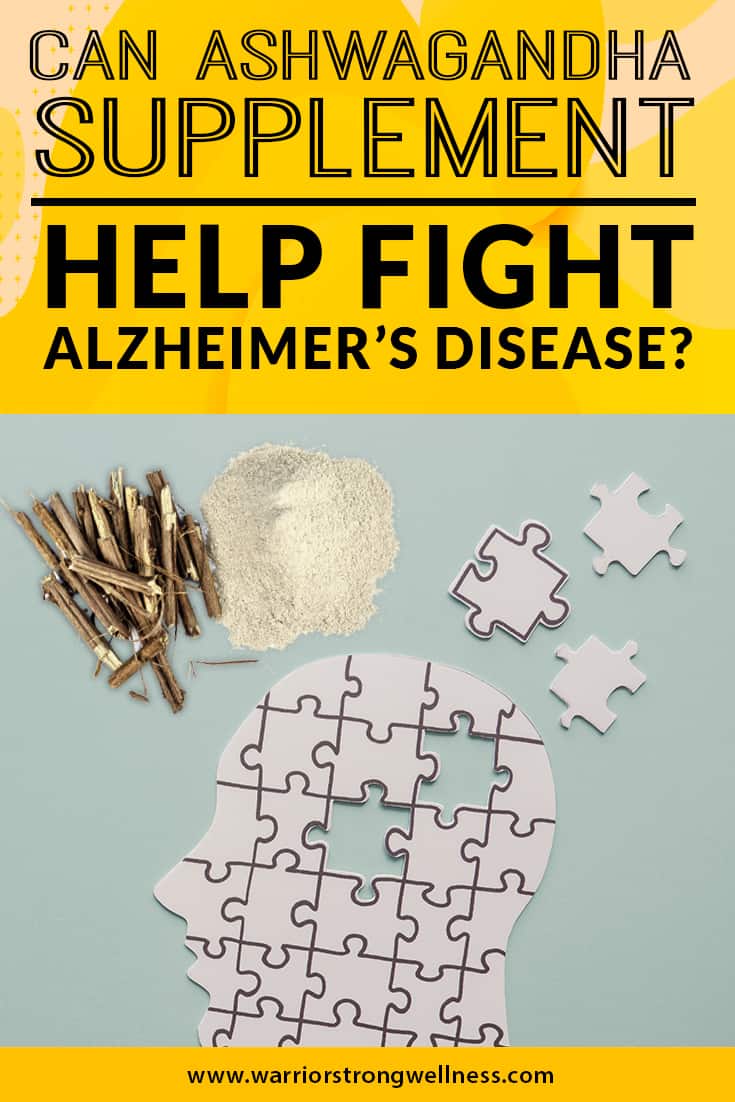What is ashwagandha? Can it do anything to help a person fight off the effects of a terrible disease like Alzheimer’s? We are going to take a look at some of the recent research that is providing hope. Then we will tell you where you can find the best ashwagandha supplement. Let’s begin by examining the origins of ashwagandha.
What Is Ashwagandha and Where Does It Come From?
Ashwagandha is a plant that is native to India, the Middle East, and Northern Africa. In Ayurvedic medicine (traditional Indian medicine), this plant has a long history. Today, Western medicine is just starting to learn about the many benefits that come from the use of this plant. As a result, there are many recent studies and those that are ongoing regarding the benefits of ashwagandha. So for what conditions do researchers find ashwagandha provides benefits?
Ashwagandha’s Amazing Benefits
According to Alzheimers.net, Ashwagandha research involves all sorts of health conditions, including things like anemia, arthritis, asthma, chronic fatigue, depression, hypertension, infertility, some types of cancer, and ulcers. However, expanding research includes topics like brain-boosting potential and help for memory issues. How may ashwagandha be of benefit when it comes to Alzheimer’s? Consider the following.
What Causes Alzheimer’s?
Knowing what causes a disease is crucial when trying to figure out what will help fight it. While it took researchers many years to discover the underlying factors of this disease, it now appears to be a buildup of proteins around the brain cells that should not be there. These proteins harden into an amyloid plaque. So think about your teeth and how plaque can gradually build up. Something similar happens with the brain cells, except the plaques are made from abnormal protein clusters called amyloid. There is also a protein named tau, which plays a role in Alzheimer’s. It mixes itself in with the brain cells, doing further damage.
While no one yet knows what causes this process to start, knowing that it happens gets researchers close enough to start finding ways to fight the disease. The idea is to find something that will reverse this accumulation of proteins that basically end up causing a toxic plaque buildup. Also known as Withania somnifera (WS), ashwagandha may be just what researchers were seeking to find.
How does ashwagandha combat this toxic protein buildup?
How Ashwagandha May Fight Alzheimer’s Disease at Its Source
Researchers working with mice were able to employ the use of ashwagandha to reduce beta-amyloid deposits in the brains of the animals. Since scientists link those amyloid plaques to memory problems, it makes sense that reducing them is the key to fighting this debilitating symptom of Alzheimer’s disease. The mice were able to regain some cognitive capacity in the study. The researchers thus purport that ashwagandha is a beneficial supplement in managing the symptoms of Alzheimer’s disease. Is this the only evidence? No.
More research appears in Phytotherapy Research involving ashwagandha in a test tube study. While the researchers don’t know the reason, it seems this ancient remedy for memory and cognitive problems is effective in inhibiting the amino acids that make up the protein related to Alzheimer’s disease. Of course, this was all done in a test tube, so living subjects are vital to confirm the findings. However, combining this study with the one involving the mice creates a good case for ashwagandha being a natural way to fight against the devastating impact of Alzheimer’s disease.
Will Ashwagandha Emerge as an Alzheimer’s Disease Therapy?
Again, since none of the research involves humans at this time, more study is necessary to confirm that ashwagandha will really be able to help patients. However, researchers are hopeful, and the early indications appear to point toward this being a suitable way to manage the disease’s symptoms. Of course, researchers will also have to determine if there are any long-term side effects to using this herbal remedy or if there are any drug interactions.
Should You Try an Ashwagandha Supplement?
In the meantime, you may wonder about ashwagandha’s brain-boosting effects. Is this just what you need for better memory or some of the well-established benefits, such as the reduction of the stress hormone cortisol? If you are interested in giving ashwagandha a try, then you want to be sure to take the best ashwagandha supplement available to you. It is the only way to be sure that you will receive the optimal benefits with no fillers that could cause harm. This is where Warrior Strong Wellness comes into play.
Take the Best Ashwagandha Supplement to See What It Can Do for You
At Warrior Strong Wellness, we pride ourselves on using the highest quality ingredients so that you have the best experience with our supplements. For example, our Pure Organic Ashwagandha Max includes BioPerine for easy absorption. This helps to ensure that you receive the optimal benefits. It is also a high dose of 1200 milligrams per serving (2 pills). Finally, we make certain that our supplement is free from major allergens like milk, eggs, gluten, soy, and shellfish, so you get all of the good stuff with nothing that can cause an adverse reaction. It is also free from artificial flavors, sweeteners, and preservatives.
Plus, every purchase can make the difference in the life of a child because Warrior Strong Wellness donates a part of our proceeds to childhood cancer research.



